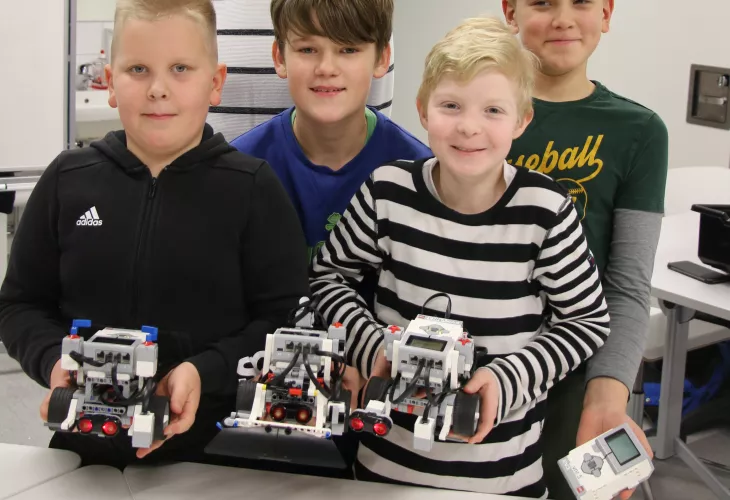In the working life, rapid changes are occurring: internationalization is emphasized, technology is advancing rapidly, and the importance of communication is highlighted. Projects funded by CBC programs (Karelia CBC, SEFR CBC, and Kolarctic CBC) have sought to prepare young people and students for the evolving society and job markets.
Becoming Familiar with Working Life
The goal of the ImProfEdu project is to improve vocational education by focusing on the needs of the job market. International skills and competence to work in a multicultural environment are at the center of the project. Within the project, learning platforms, digital learning environments, and skill development tools have been implemented for educational institutions in the fields of tourism and service, hairdressing, construction and interior design, and customer service, specifically when working in a multicultural work environment.
The project has also fostered partnerships for workplace-based learning. Work-life-oriented learning has intensified, and on-the-job learning has increased. The international skills of the staff have improved. The ImProfEdu project is funded by Southeast Finland-Russia CBC.
BRIDGE, funded by Kolarctic CBC, is entirely focused on work-related connections. The idea has been to assign development tasks from companies – and to some extent, other organizations – for student groups to solve. The project has organized 7 events across the program area, where student groups have delved into the given challenges and competed to find solutions. Approximately 150 young people have participated in these competitions. You can read more about BRIDGE in Kolarctic CBC Programme Stories: https://kolarctic.info/programme-stories/bridge-between-learning-and-doing/
Young People and Technology
New Stream of Technology (CBC Nesttec), has introduced robotics education to schools in South Karelia. This fresh approach challenges the perception that robotics and other technological advancements are
solely the domain of universities and businesses. Instead, it directs the enthusiasm of young students toward potential future collaboration. The project has organised workshops and seminars where students assemble robots and program their functions. The project has been funded by the Southeast Finland-Russia CBC programme.
Arctic Skills reinforces belief in the development of professional skills. Arctic Skills has organized professional skills competitions among students from vocational institutions in the northern regions of Finland, Sweden, and Norway. In the early stages of the project, Russian students from educational institutions were also involved. Students have competed in approximately 15 disciplines, including electricians, HVAC technicians, surface treatment specialists, restaurant professionals, and healthcare workers. Specialties unique to the Arctic region, such as reindeer husbandry and Sámi handicrafts, have also been part of the competitions. The project was funded by Kolarctic CBC. You can read more about it in Kolarctic CBC Programme Stories: https://kolarctic.info/programme-stories/this-is-how-professional-workforce-is-made/
Business, its specializations, and interpersonal skills
Karelia CBC-, SEFR CBC- ja Kolarctic CBC-programmes have funded projects which have improved entrepreneurial skills, and young students have been welcome to participate.
Projects in Karelia CBC programme:
SPEAK BUSINESS taught young professionals to speak the same language – professional business language in management projects, social entrepreneurship and international business, as well as English, Finnish and, initially, Russian in corporate communication. SPEAK BUSINESS sought to promote international economic cooperation by developing the capabilities of young business professionals. The full name of the project was SpeakBusiness: Strategic planning and project management for cross-border area.
The BUSY project was undertaken to reinforce capacity building of youth entrepreneurs and self-employed people to start businesses.
Social cross-border entrepreneurship: Start-up for everyone and opportunities for all, also known as SOCCER-project activated young people in entrepreneurship, especially social entrepreneurship.
Projects in South-East Finland – Russia CBC:
EDUCRO project’s objective is to promote skilled, well-educated and connected entrepreneurs, workforce and organizations to produce new customer-oriented and internationally competent cultural products and services in the digital age.
The task of the SuShi project was to prepare high school courses for sustainable development that transcend subject boundaries and utilize new learning methods and environments in co-operation between Finnish and Russian teachers. The focus of the project was on students, who deepen their knowledge of sustainable development.

